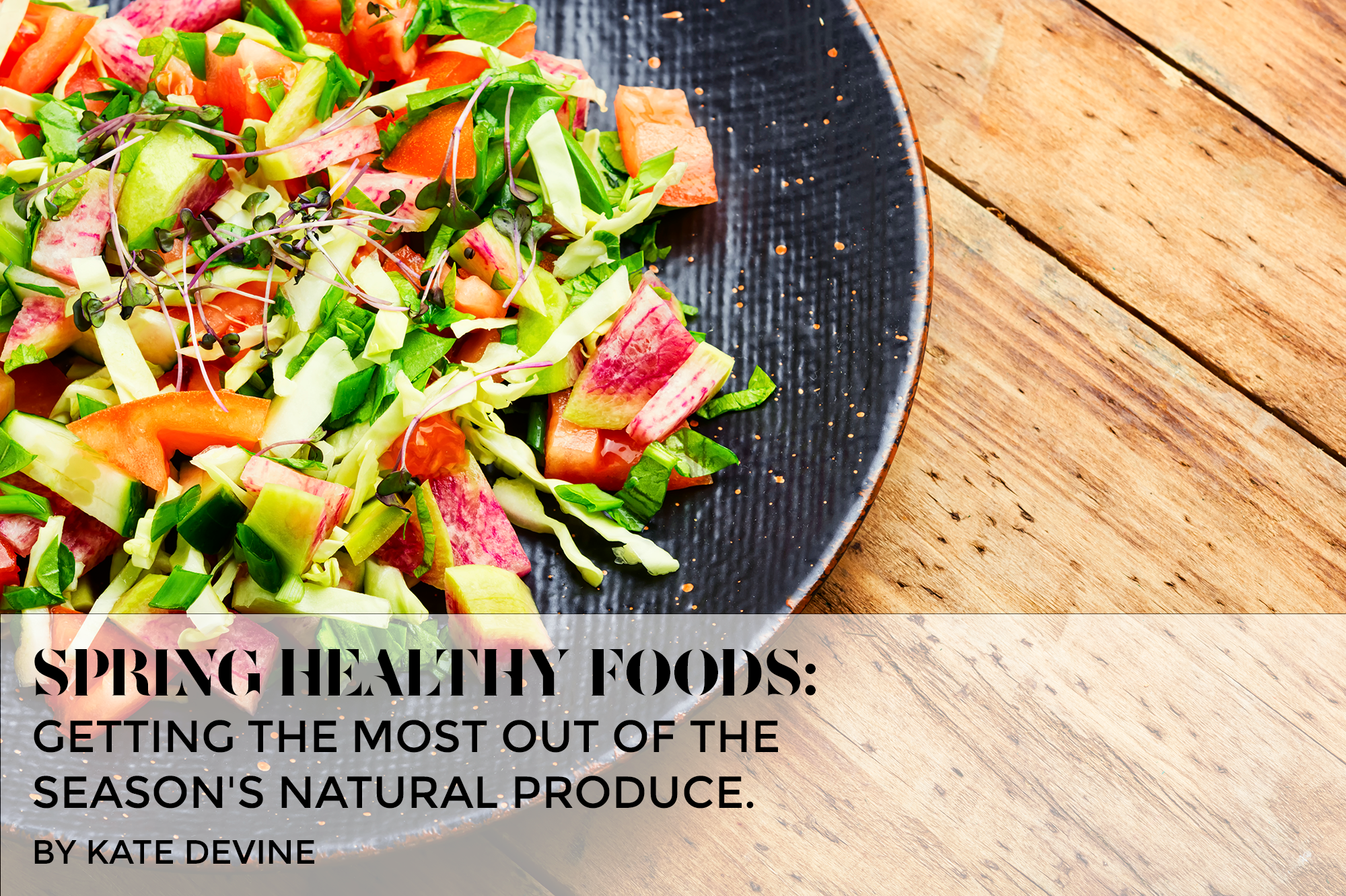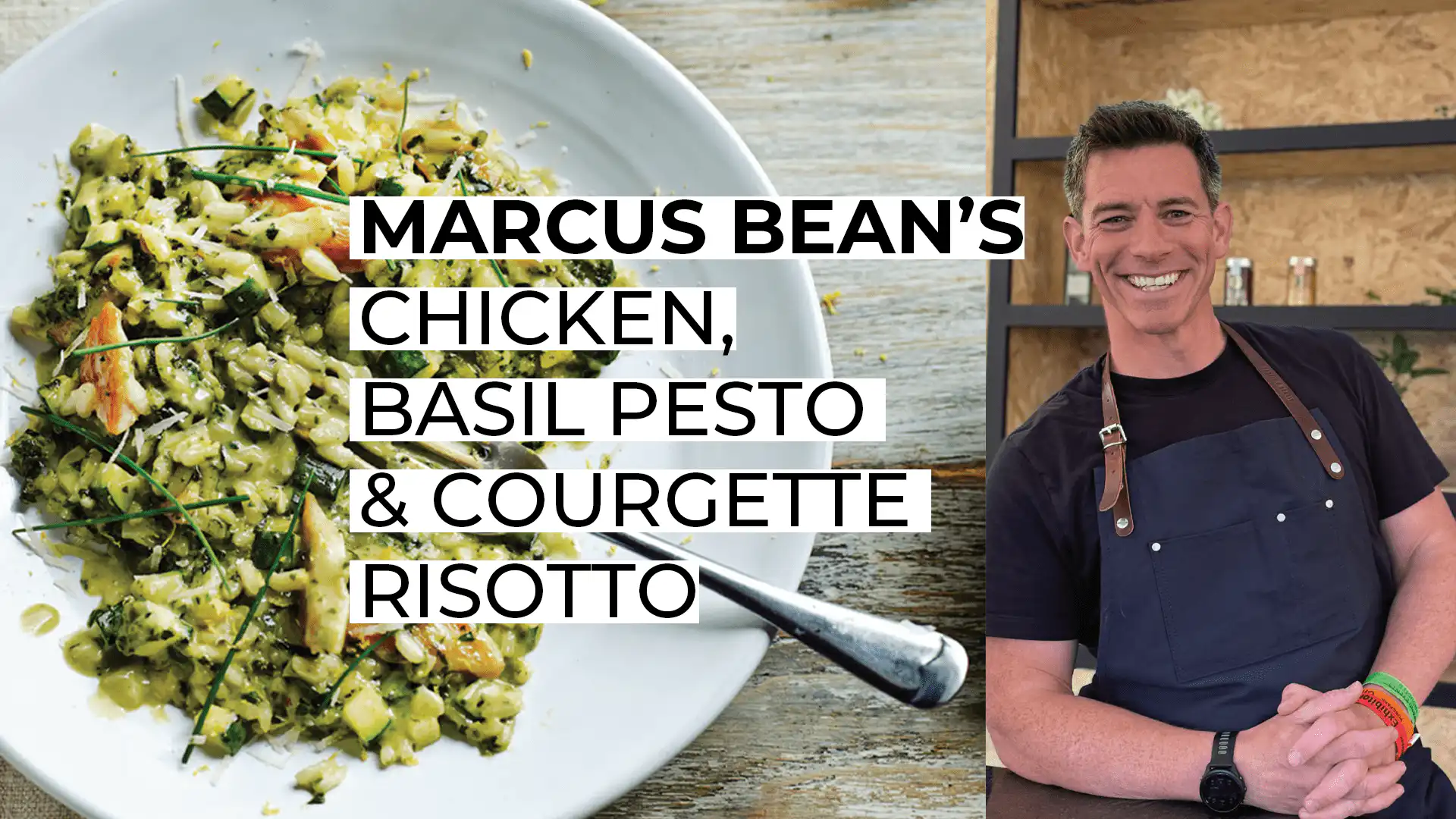Spring Healthy Foods: getting the most out of the season’s natural produce.
Spring Healthy Foods: getting the most out of this season’s natural produce.
By Kate Devine
Spring has (nearly) sprung and that means a change in some foods that we should eat to keep us healthy throughout this new season. When foods are in season, obviously they taste better due to being richer in vitamins and minerals, but eating seasonal foods is also more sustainable as they are relevant to your geographical area and therefore require less travel, packaging and storing, while supporting small farmers and the local economy. Growing and consuming crops seasonally not only guarantees flavourful and nutritious produce, but promotes a varied diet and allows the environment to cycle through its natural resources and seasons like it would without human intervention.
I’m pretty sure we’ve all heard of the tomato shortage that’s swept the nation recently? Or as I noticed on a news app the other day, ‘Salad crisis to hit Britain!’. WOW, no wonder we all panic bought toilet rolls in the pandemic! Well, rest assure, it’s only due to the unexpected weather conditions abroad, therefore the fruit and veg that gets imported hasn’t grown as it should. I’ve read that things will return to ‘normal’ within 6-8 weeks so no need to panic people!
Here’s a list of some of the foods, and their amazing properties, that are in season during Spring:
Apple – help balance blood sugar levels, strengthen bones, lower cholesterol and provide relief from constipation and diarrhoea
Artichoke – help balance blood sugar levels, lower cholesterol, aid the digestion of fat and has a mild laxative and diuretic
Asparagus – help strengthen the immune system, keeps blood vessels supple, removes energy-draining toxins and has a mild laxative action
Beetroot – Has a liver-cleaning action, lowers the risk of heart attack, improves blood oxygen uptake and has an anti-diabetic effect
Broccoli – promotes collagen synthesis, strengthens the immune system, promotes prostate health and protects eye health – make sure to eat the leaves as they contain the most beta-carotene
Cabbage – helps heal ulcers, supports healthy liver function, fights free-radical damage to skin
Carrots – help lower cholesterol, powerful antioxidant, aids digestion and feeling of fullness and helps maintain good eyesight
Chicory – promotes healthy digestive tract, removes toxins from the blood, natural sedative properties and has a mild diuretic action
Leeks – feed the good gut bacteria, helps lower cholesterol, powerful antibiotic action and have a gentle diuretic and laxative
Parsnip – helps lower cholesterol levels, contain anti-inflammatory and anti-fungal properties, boosts your immune system and aids digestion
Purple Sprouting Broccoli – contains more antioxidants than green varieties but more prone to nutrient loss when cooking
Radishes – help lower blood pressure, supports healthy liver function, treats congestion and inflammation
Rhubarb – helps strengthen bones, protects against neurological-degeneration, lowers cholesterol and helps protect eye health
Spring Onions – feed the good gut bacteria, helps lower cholesterol, powerful antibiotic action and contains immunity-boosting sulphur compounds
Watercress – contains anti-cancer substances, aids digestion, promotes clear skin
Try to include these foods in your diet as much as possible over the next few months to ensure you and your family are getting the most out of this seasons natural produce.


written BY KATE DEVINE
KEEP UP TO DATE WITH BROOD:
Related Articles
TURBT vs Other Bladder Procedures: A Straightforward Guide for Working Parents
We compare TURBT vs other bladder procedures and explain the key differences in purpose, recovery, diagnosis, follow-up care, and patient suitability.
When Parents Split, Schools Feel It Too: The Hidden Impact on Children
Relationship expert Sally Land highlights the hidden toll that high-conflict separations can take on children — and how often schools end up caught in the crossfire. Citing research from The Parents Promise, she notes that teachers are regularly seeing the fallout in real time: slipping grades, increased absence, withdrawal, behavioural issues and worsening mental health.
The Balance of Play
I hate admitting that because I value play so deeply, especially in those precious early years. It’s how our children learn, explore, imagine and build confidence. But as a mum trying to keep a household running and a business growing, it’s not always easy to appreciate those moments.































